Keeping Whale Shark Tourism Sustainable in Madagascar
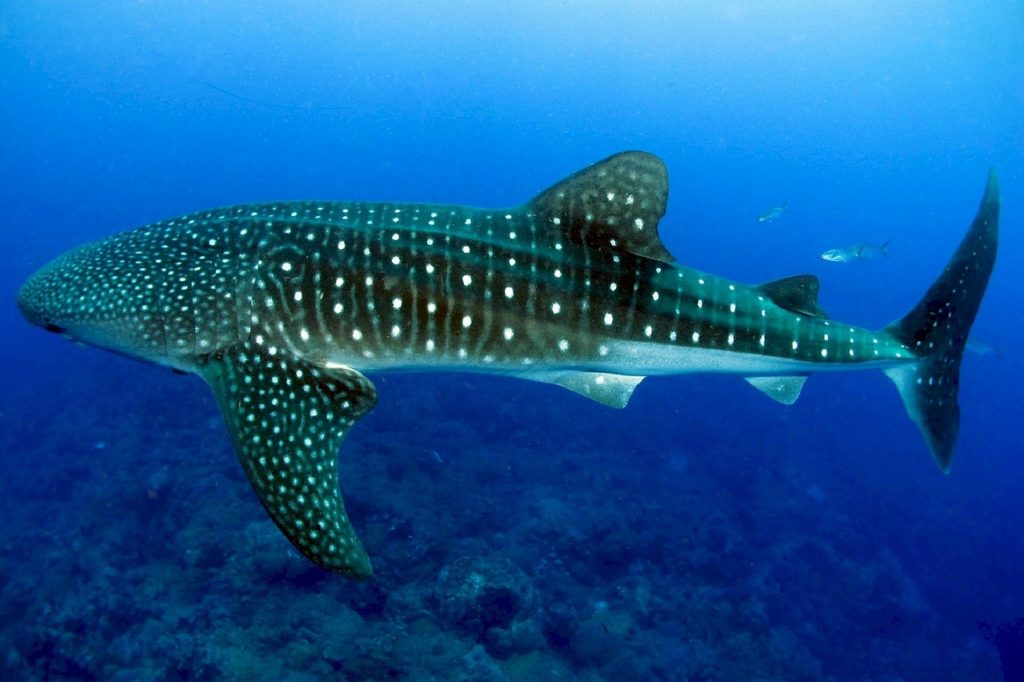
Madagascar’s Nosy Be was recently identified as a hotspot for whale sharks, which could boost the island’s ecotourism to rival the likes of global whale shark hotspots in Tanzania and Mozambique. One woman – the lead author of the study that identified Nosy Be as a feeding hotspot– has now introduced a code of conduct to protect the sharks, enhance tourists’ experience and ensure any income to the island generated as a result is sustainable.
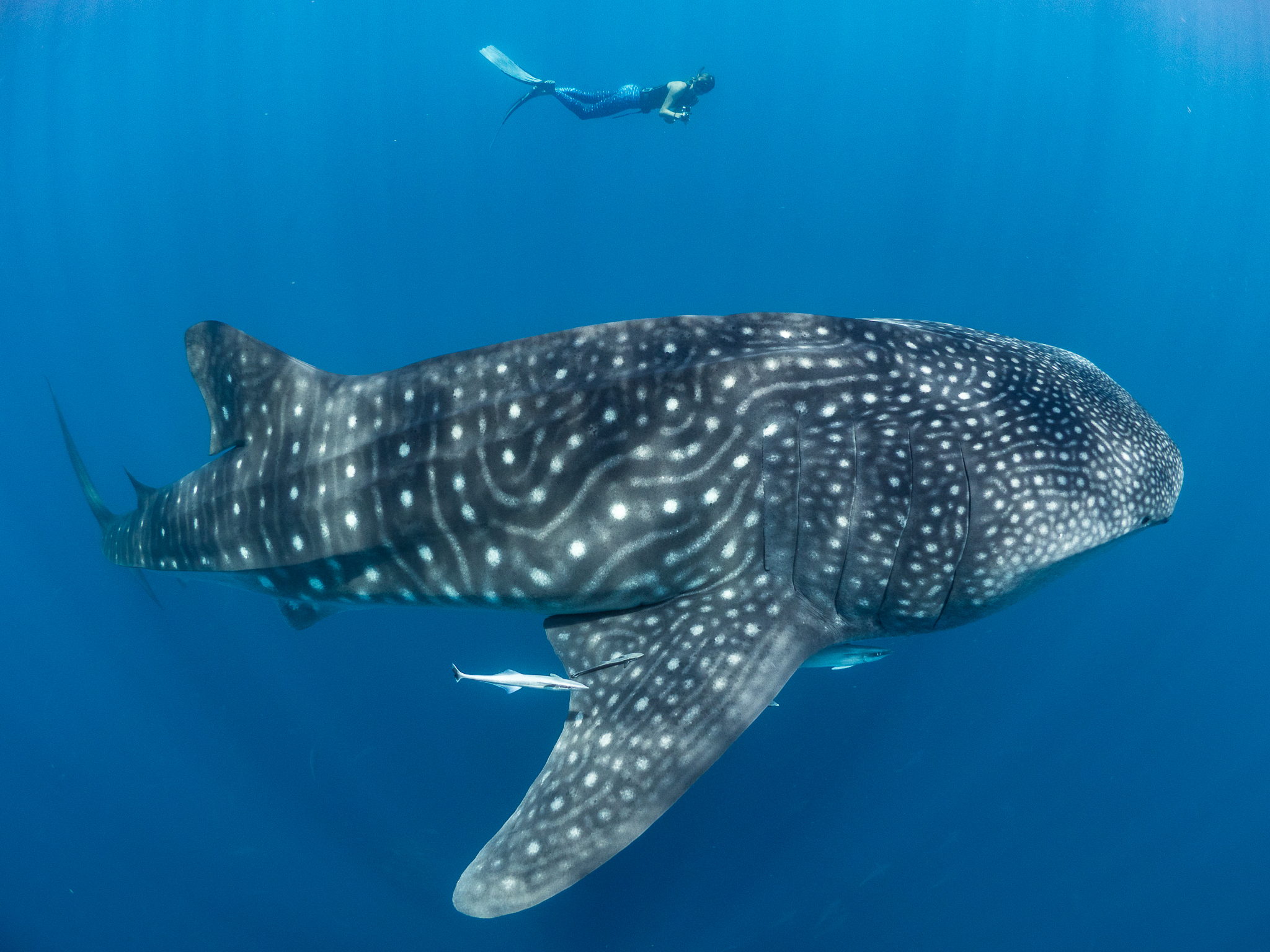
A Personal Encounter
I first met Stella Diamant, Founder of the Madagascar Whale Shark Project, when she was visiting Tofo Beach in Mozambique where I was living. I already knew that Madagascar was a destination with amazing wildlife on land (lemurs, chameleons are more) but talking to Stella brought to life how special Madagascar’s oceans are too.
Stella told me about her incredible experiences sharing the water with four different species of dolphin at once as well as swimming and diving with beautiful animals like turtles and manta rays. It’s also the only place in the world you can find the Omura’s whale throughout the year and, of course, there’s the (huge) reason Stella is there: the gigantic whale shark. This endangered species is the world’s largest shark, reaching up to 18 to 20 meters in length when fully grown.
Search for your memorable Madagascar experience
The Study
The Madagascar Whale Shark Project in collaboration with researchers from the Marine Megafauna Foundation, Florida International University and local NGO MADA Megafauna recently published a study that found that juvenile whale sharks regularly visit Nosy Be to feed between September and December.
The team identified 85 sharks in the area in a single season. By comparison, Tanzania and Mozambique saw 70 and 33 sharks respectively during the same year. The confirmation that hundreds of juvenile sharks come to Madagascar each year to feed is groundbreaking considering that before Stella arrived on the island people believed only a handful of sharks visited the area.
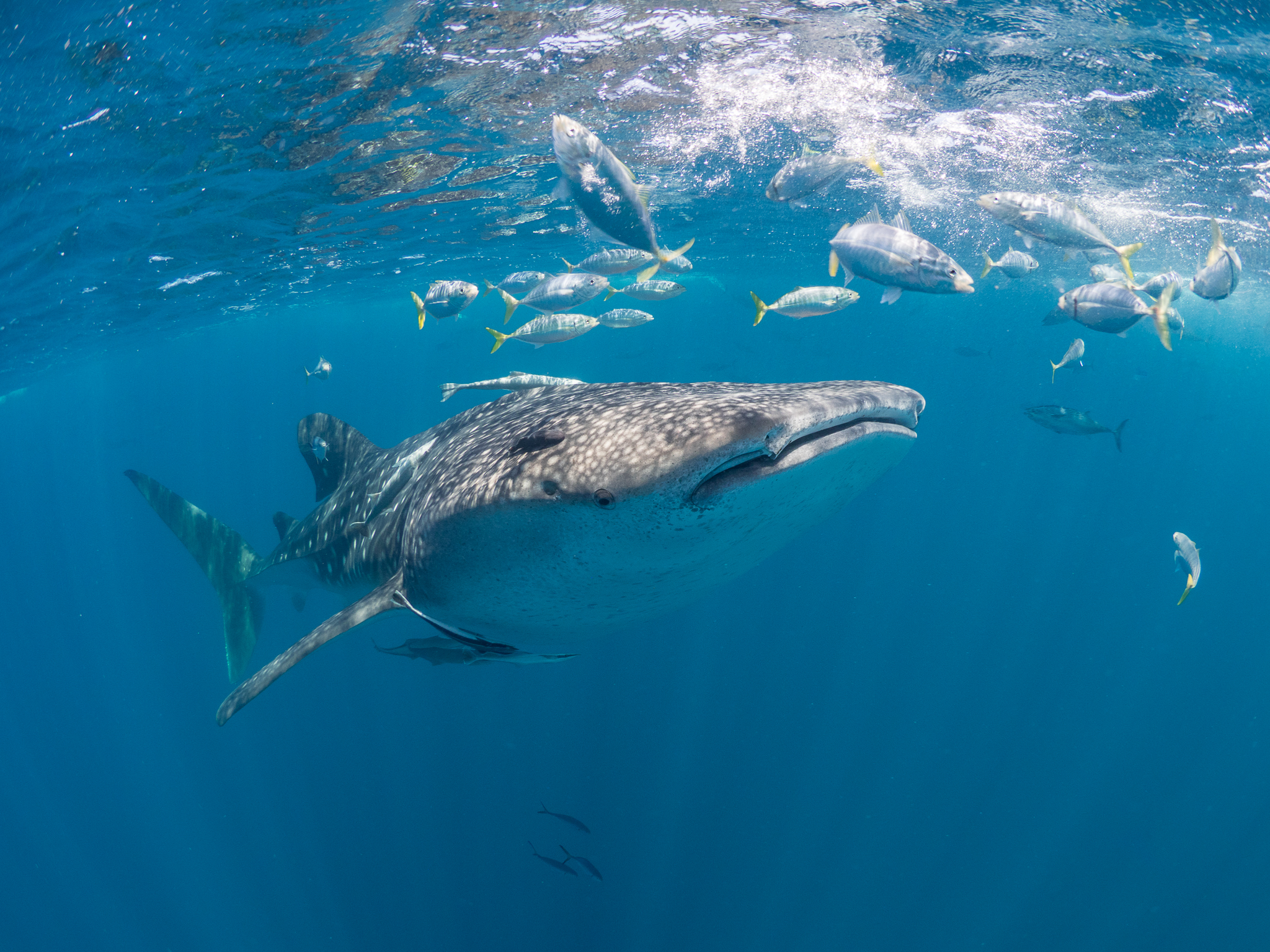
Stella’s Experience
How did this all come about? Stella, now 28, first visited Madagascar as a volunteer for a research project. As a nature-lover, the island’s incredible biodiversity captivated her and she returned years later to visit friends and see if she could find an opportunity to stay on the island for longer. After hearing that there were whale sharks in the northwest of the island, she jumped on a whale shark trip with a local operator and fell under the spell of these gentle giants. When she tried to find out more about the local population of sharks, she realized no-one was studying them so she decided to set up her own research project to find out more.
The newly recognized numbers of sharks have meant changes for the island. “It has led to a growing ecotourism industry, as people travel to see and swim with these gigantic, harmless sharks,” Stella said. “We’re still learning about their population structure and movement patterns, but it’s clear the area is an important hotspot for the species.”
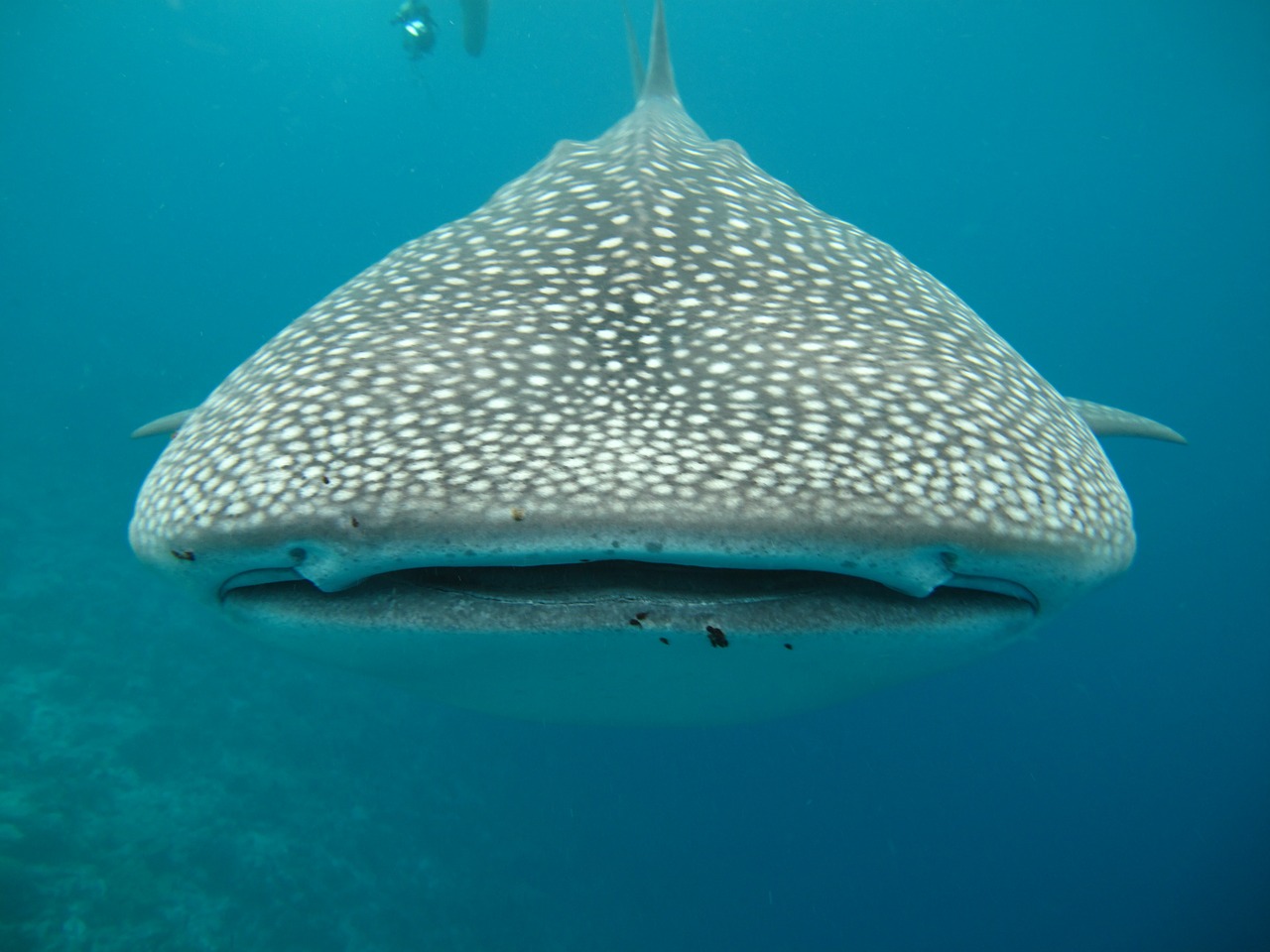
The Endangered Whale Shark
Whale sharks are a globally endangered species due to overfishing, accidental catches and boat strikes. Major declines in sightings have occurred globally, including in Mozambique, by 79% since 2005, and in the Seychelles. “ It’s great news for Madagascar,” Dr. Simon Pierce, co-author of the study and co-founder and principal scientist at the Marine Megafauna Foundation, said. “These sharks can be a major asset for the country.”
Madagascar can reap huge economic benefits from the tourists who visit the island specifically to swim with whale sharks but– and this is the really important part– only if it’s done properly. “Unmanaged tourism has been linked to declines in sightings and we don’t want to encourage any human behaviors that might negatively impact the sharks,” said Stella, whose key goal is to ensure tourism remains sustainable.
Search for your memorable Madagascar experience
A Code of Conduct
As a result, she has developed and rolled out a code of conduct across the island, advising operators on best practice procedures to interact with the sharks in the most responsible way possible. The guidelines recommend that:
- Only one boatload, ideally of no more than 10 people, get in the water with each shark at a time
- Boats with engines running stay at least 25 meters away from any sharks
- Swimmers give the animals plenty of space: at least 3 meters away from the sharks, 4 meters from their tail and never trying to touch the animals or ride them.
These measures are intended not only to protect the sharks from accidental boat strikes but also to make sure the tourists have a longer and better encounter with the animals. The sharks can be quite skittish but if they aren’t frightened by too many boats or people splashing about in the water, they will be more relaxed and will hang around with the snorkellers for longer.
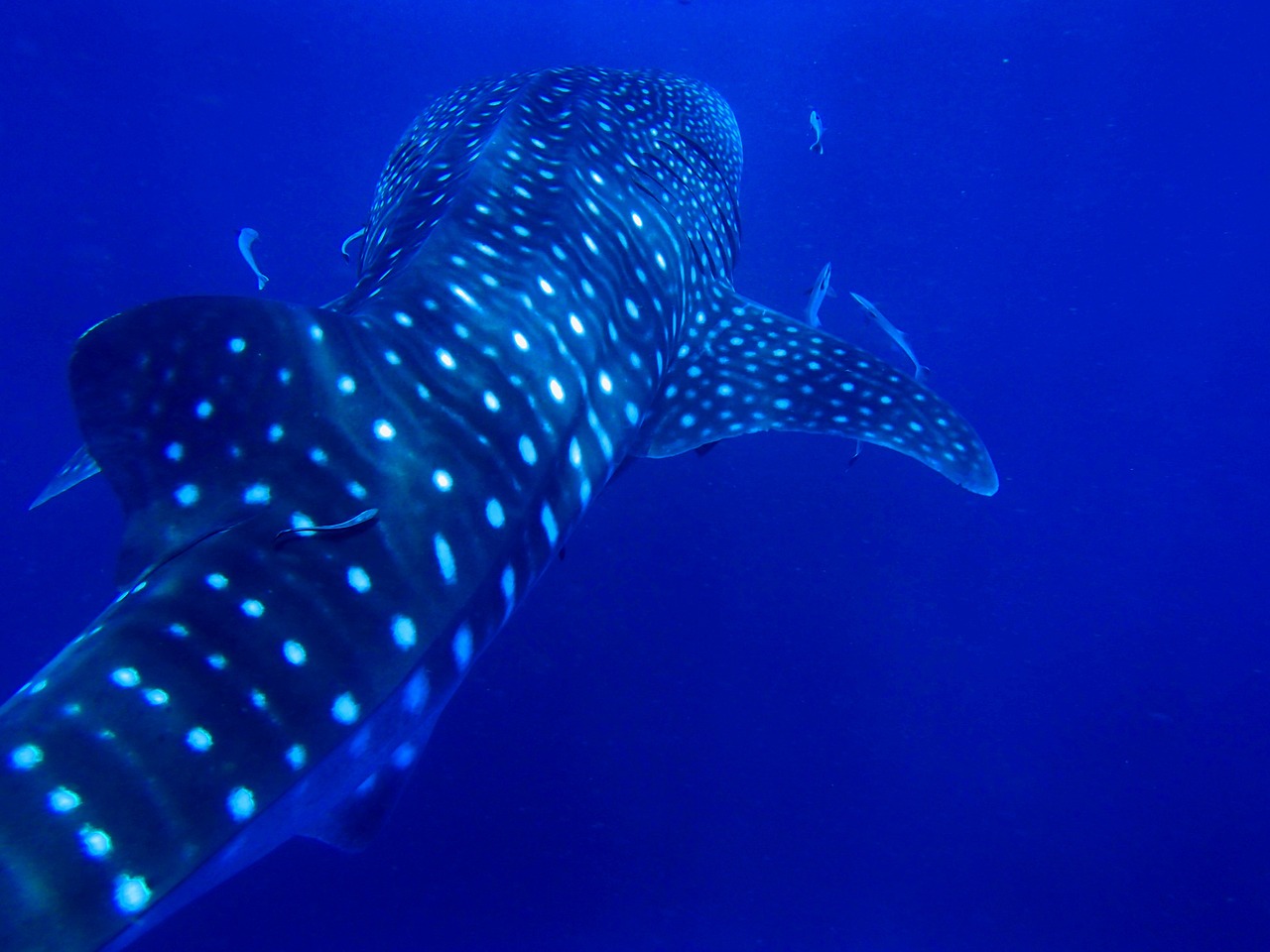
Long-Term Vision
“As well as protecting this endangered species, our code of conduct helps tourists have the best possible encounter so that whale shark tourism can bring in a sustainable, long-term income to the island,” Stella said. “There’s something so humbling about sharing the water with these magnificent creatures and, through this incredible experience, we want to help them understand why it’s so important to work towards protection for the species; not only for the sharks themselves but also for the country’s economy, ecosystem and culture.
Currently, no sharks or rays are protected in Madagascar and they are still threatened by fisheries, accidental bycatch and ocean pollution. But Stella is optimistic. “We’re getting there and, while there’s much more to be done, I do have hope that with continued hard work and perseverance, we can make a difference.”
Book Your Stay Now in Madagascar
Use an interactive map below to search, compare and book hotels & rentals at the best prices that are sourced from major booking sites like Booking.com, Hotels.com, Expedia, Vrbo, and more. You can move the map to search for accommodations in other areas and also use the filter to find restaurants, purchase tickets for tours and attractions, and locate interesting points of interest!


Melissa Hobson is a freelance travel journalist based in Tofo Beach, Mozambique. She specializes in scuba, marine and eco-travel stories and has been published by the likes of Lonely Planet, MTV, DIVER, Family Traveller, Good Housekeeping and more. For more information see www.melissahobson.co.uk.
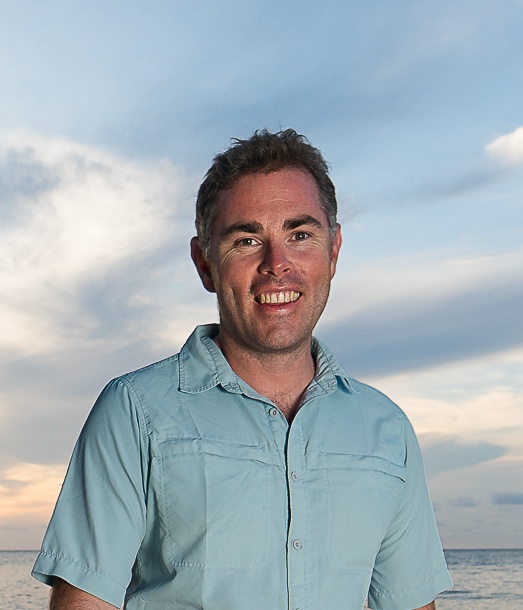
Simon J. Pierce is a marine conservation biologist and wildlife photographer from New Plymouth, New Zealand. Simon is also an award-winning marine wildlife photographer. His photography and videos have been widely published by international media, including National Geographic, BBC, New Scientist, Nature, The Guardian, Discovery Channel, Washington Post, Animal Planet and BBC Wildlife. Sir David Attenborough selected one of Simon’s photos for the BBC’s Blue Planet II series.